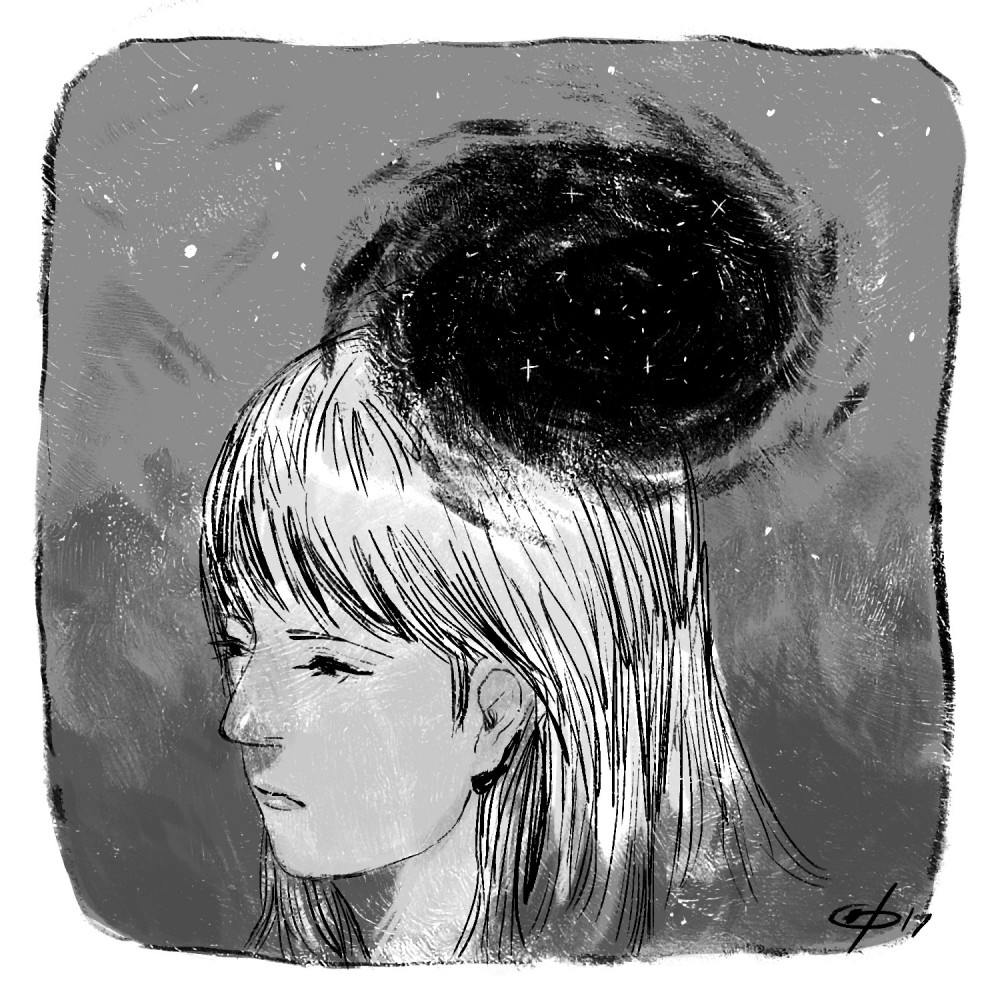When you have a broken wrist, everyone immediately notes the stark white cast. It’s understood that you can’t write while you’re healing. And when the kid next to you in lecture asks what happened, you laugh and tell him how you fell off your bike when you almost ran over the cutest puppy ever. When have a mental illness, you bear no cast. And you don’t exactly go yelling your condition from rooftops, or lightheartedly tell the classmate the way you “totally slept for like, 18 hours straight this weekend!”
My depression isn’t sexy. It’s not one overwhelming moment of calamity. It’s tedious. It’s tired. My depression is wearing sunglasses on the way home from class so nobody can see the red in my eyes or the purple underneath. It’s the imprint of my body on the twin-XL mattress pad my mom bought on Amazon. My depression is a couple layers of dry shampoo deep. It sits in the dry heat of the windowless office of my therapist, dull and throbbing.
I started going to therapy when I was in tenth grade: four years later it has become such an integral part of my being that I can’t imagine who I would be without it. It’s my space to reflect, to relieve, and to grow. From these weekly sessions I have learned how to think honestly and critically, how to actively recover and work towards self-improvement. Mostly, nothing is happening in my life, but my therapist and I work through that nothing together. You don’t wait for your first heart attack to realize you need to take care of your cardiovascular health—I think about therapy the same way for my mental health.
One of the best compliments I ever received was from my roommate. She told me, over late-night popcorn and piles of neglected homework, “Jamie, what I think I most appreciate about you is how vulnerable you are. It means a lot to hear about the worst parts of your day, about your mental health. It makes me feel like I’m not alone and it makes me feel like I can open up, too.”
I struggled to write this, at first: how do I go about discussing such a loaded topic, one we talk about a lot in broad strokes and catastrophic terms? A topic which, for me, is so historied, so personal? I’m not ashamed of my mental illness. I don’t judge myself for it and I know that I am strong and capable and smart. But I know how mental illness is perceived; I know the shame one’s supposed to bear. And while I’ve always felt comfortable sharing with my friends and family, the person sitting next to me in class is likely never to know of my depression. So I’m writing this as a cast of sorts: a way to publicly heal, to be openly vulnerable and honest about my health.
My depression is constant effort. It’s setting aside an hour every week to go to counseling. It’s turning my papers in on time and having a consistent sleep schedule. It’s going to the gym four times a week and cooking for myself. It’s knowing how to ask for help. And it’s manageable because I put up a goddamn fight to manage it.
Of course, I recognize how lucky I am to have parents that have emotionally and financially supported me throughout the past several years. Without them I don’t know if I would’ve had the strength to seek help when I needed it, and I recognize the privilege of being able to afford consistent therapy and treatment. I’m also forever grateful to all the friends who have always been there to simply listen when I needed it. Know that even if you don’t have the resources to go to therapy (which can notoriously be prohibitively expensive), there are other options available both on and off campus.
Penn, we have a problem. And while I don’t have the answers, I hope that my vulnerability (because holy shit, this is scary to write about) helps to break down this wall of impenetrability we have somehow built. We all hit lows, so many of them, so often in isolation. And it can’t be that we only talk about this stuff when tragedies occur. Find people who’ll lend an ear to listen and a shoulder for support and who’ll help you remember to laugh. And remember that success depends on your ability to face adversity, not avoid it.

